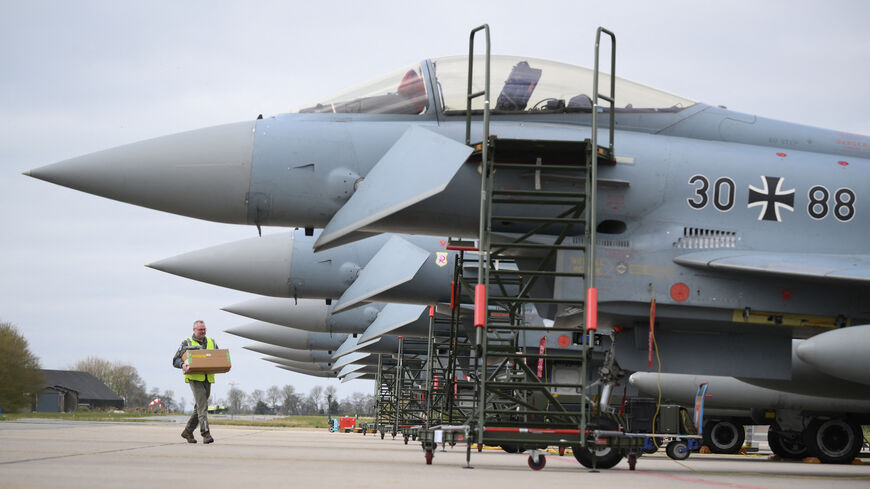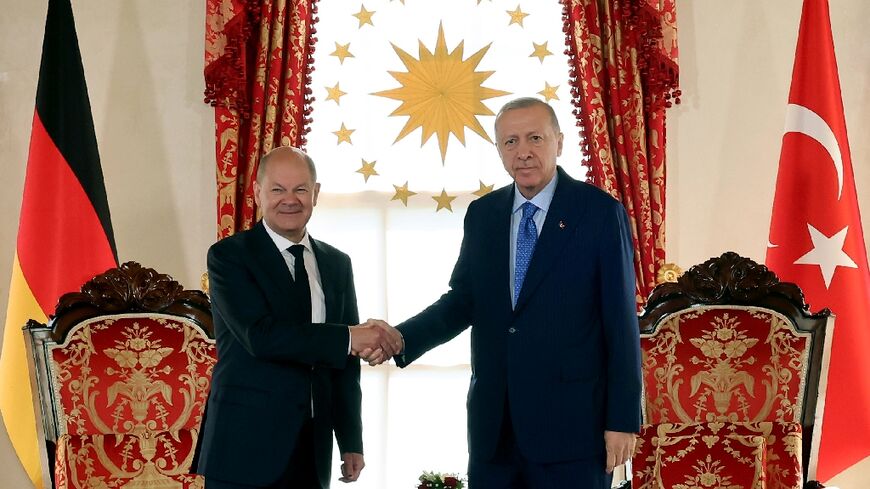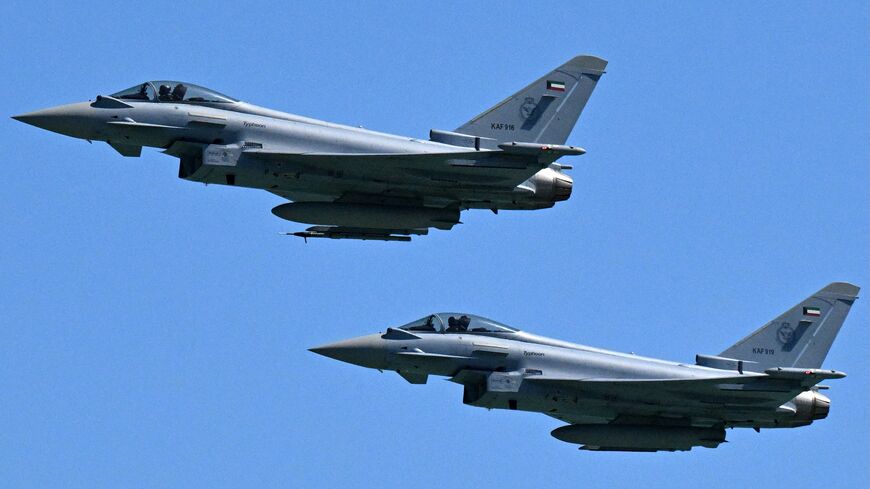Germany resumes arms sales to Saudi Arabia with missile deal

Germany on Wednesday said it had approved the sale of missiles to Saudi Arabia, ending a blockade on direct arms exports to the Gulf kingdom in place since 2018.
Government spokesman Steffen Hebestreit confirmed a report by German weekly Spiegel, which said Berlin had given the green light for the delivery of 150 Iris-T air-to-air missiles to Riyadh.
"The details of this report are accurate," said Hebestreit, speaking at a regular government news conference.
The Iris-T missiles could "be fired from aircraft at airborne targets, that is to say missiles, drones and so on", Hebestreit added.
Consent for the export of the missiles, manufactured by German group Diehl Defence, was granted towards the end of last year, Spiegel reported.
The approval marked a reversal in Germany's position on arms exports to Saudi Arabia, with Riyadh playing an important role in the region that has been rocked by wars in Gaza and Yemen.
Germany had placed a weapons export ban on Riyadh following the 2018 murder of dissident journalist Jamal Khashoggi in the Saudi consulate in Istanbul.
The governing parties -- the Social Democrats, Greens and pro-business FDP -- signed a coalition agreement saying they would not approve exports to countries involved in the war in Yemen, among them Saudi Arabia.
But Berlin has loosened its stance, with the government praising Saudi Arabia's "constructive approach" in the Israel-Hamas war.
- Veto end -
Saudi Arabia had not renounced plans to normalise relations with Israel since the beginning of its war with Hamas, Foreign Minister Annalena Baerbock said on Sunday on a visit to Israel.
Riyadh had also made efforts to intercept missiles fired at Israel by Iran-backed Huthi rebels in Yemen.
"Saudi Arabia is a key contributor to Israel's security, even these days, and is helping to stem the risk of a regional conflagration," the minister said.
Berlin on Monday said it was also ready to allow the export to Saudi Arabia of Eurofighter jets, used by the kingdom's military to shoot down Huthi-fired missiles.
Until now, Germany had long used its veto rights as part of the defence partnership behind the jet to block a deal sought by London since 2018.
Huthi rebels have targeted Israel with missiles and drones, and attacked ships passing through a vital Red Sea shipping lane, with the group claiming to act in solidarity with Gaza.
Berlin's course change risks adding to domestic political disagreements, with leading figures in Baerbock's Greens voicing concern about the move.
Co-chair of the Greens, Ricarda Lang on Monday insisted that "with a view on the human rights situation, including Saudi Arabia's domestic constitution, I think as before that it is wrong to deliver Eurofighters" to the kingdom.
Some members of Chancellor Olaf Scholz's own Social Democratic Party (SPD) have also spoken out against the policy switch.
"The participation in the Yemen war, the oppression of the country's own population and the murder of journalists all speak clearly against such arms deliveries," SPD MP Ralf Stegner, who sits on the Bundestag's foreign affairs committee, told German daily Handelsblatt on Monday.








